Update on Habeas Corpus Chimp Ruling
Justice Jaffe has amended the order she issued yesterday in a case brought by the Nonhuman Rights Project (NhRP), regarding two chimpanzees, Hercules and Leo, who…
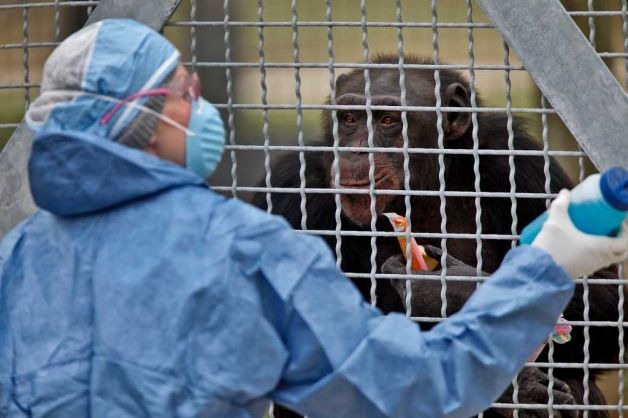
Justice Jaffe has amended the order she issued yesterday in a case brought by the Nonhuman Rights Project (NhRP), regarding two chimpanzees, Hercules and Leo, who…
For the first time in history, a judge has granted a writ of habeas corpus on behalf of a nonhuman animal. This afternoon, in a case…
As usual when it comes to the topic of drought, there’s a giant elephant in the room that almost no one wants to talk about. In…

If you’ve seen how SeaWorld is responding to John Hargrove’s new book Beneath the Surface, it’s hard to miss the similarities with Scientology’s dirty tricks campaigns…
Utah’s Attorney General is concerned for poor people. The new law in California that gives egg-laying chickens enough room to “lie down, stand up, fully extend…

Part Six in the series “I Am Not an Animal.” In previous posts, we looked at how our anxiety over our mortal, animal nature drives us to distance ourselves, psychologically and literally, from our fellow animals; at how ancient mythologies told of a “fall” from a time when we were in harmony with the other animals; and at how our belief in “human exceptionalism” has led us to treat them.
Now we ask: Where do we go from here, and is there any way out of our situation?
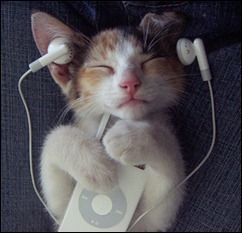
In a lighter vein than usual on this blog (!): What kind of music do cats prefer: Jazz? Classical? Bluegrass? New Age? The answer: None of…
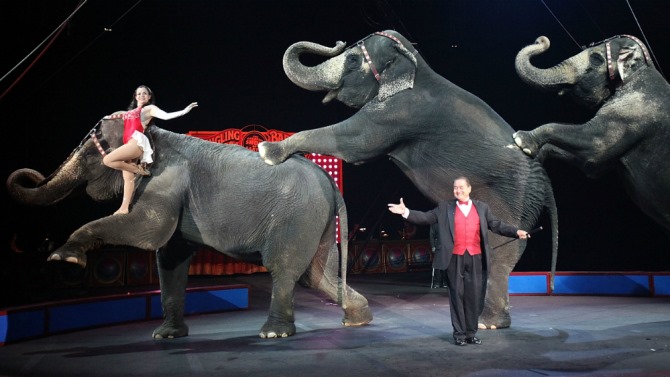
The elephants are packing their trunks. By any standard, today’s decision by the Ringling Circus to phase out its elephant acts represents a seismic shift in…
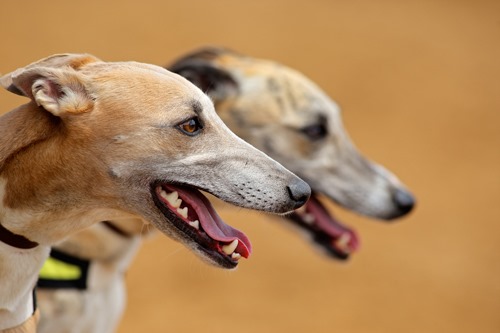
“Make no mistake,” writes greyhound racer Kevin Pitstock. “Greyhound racing in Australia is teetering on the brink of destruction.” In the wake of an investigative report…
A headline last week in a trade publication called The Poultry Site proudly proclaimed: “Animal Welfare at Slaughter Improves in UK.” Welcome to the Orwellian world…
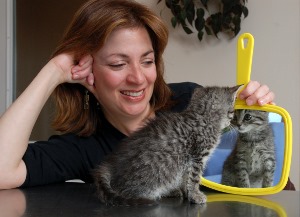
 (Fifth in a series about how and why our relationship to our fellow animals has deteriorated to the point of an unfolding mass extinction.)
(Fifth in a series about how and why our relationship to our fellow animals has deteriorated to the point of an unfolding mass extinction.)
By Dr. Lori Marino
However much we like to think of ourselves as different from and superior to the other animals, we can’t escape the fact that we are, just like them, mortal, physical creatures, equally subject to the laws of nature.
The existential terror that’s caused by this ever-present knowledge has been studied at length by psychologists in the field of Terror Management Theory (TMT).
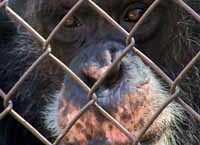

In this second part of our interview with Andrew Harvey, he talks about how you can discover your own true mission and about what can happen…

It’s unusual to find someone who combines a deep, mystical love of the Divine with a stark realism about how we humans are bringing on a…
If you haven’t read the shocking, eye-opening report by the New York Times on the secret, government-operated US Meat Animal Research Center and its “one overarching…
In the first part of our interview with Stephen Cave, he talked about how, once we decide that we are fundamentally different in kind from the…
In previous posts we’ve talked about how our relationship to our fellow animals and the way we treat them is driven by our anxiety over the fact that we’re animals, too, and our denial of our own animal nature.
In his book Immortality: The Quest to Live Forever and How it Drives Civilization, Stephen Cave discusses the chief ways in which we persuade ourselves that we’re not really animals, that we can avoid death altogether, or at least that some part of us will live on in some way after we’re dead. Here’s the trailer to the book:
In the first of two posts, Cave explains how, once we decide that we are fundamentally different in kind from other animals, we can then view them as having a lower moral status. And that, in turn, opens up "a whole world of possibilities for how we treat them."
Starting around 9,000 years ago, the agricultural era brought about the large-scale domestication of animals and a fundamental shift in our relationship to them. Less and less beings of great mystery and power, they were becoming, instead, commodities.
(Fourth in a series about how and why our relationship to our fellow animals has deteriorated to the point of an unfolding mass extinction.)
How and when did we humans decide we didn’t want to think of ourselves as animals any longer? How did we go from thinking of the other animals as essentially our equals to treating them as commodities that exist to be mined from the oceans by huge factory ships and manufactured from birth to death on factory farms?
It’s obviously a long and complex story, but we can get an idea of how it took place over thousands of years in various parts of the world.
(Third in a series about how and why our relationship to our fellow animals has deteriorated to the point of an unfolding mass extinction.)
Sandra tries to hide in her pen at the Buenos Aires Zoo In the first-ever case of its kind, an orangutan at a zoo in Argentina…